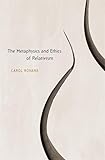The Metaphysics and Ethics of Relativism / Carol Rovane.
Material type: TextPublisher: Cambridge, MA : Harvard University Press, [2013]Copyright date: ©2014Description: 1 online resource (300 p.) : 1 halftoneContent type:
TextPublisher: Cambridge, MA : Harvard University Press, [2013]Copyright date: ©2014Description: 1 online resource (300 p.) : 1 halftoneContent type: - 9780674725713
- 9780674726062
- 149
- online - DeGruyter
- Issued also in print.
| Item type | Current library | Call number | URL | Status | Notes | Barcode | |
|---|---|---|---|---|---|---|---|
 eBook
eBook
|
Biblioteca "Angelicum" Pont. Univ. S.Tommaso d'Aquino Nuvola online | online - DeGruyter (Browse shelf(Opens below)) | Online access | Not for loan (Accesso limitato) | Accesso per gli utenti autorizzati / Access for authorized users | (dgr)9780674726062 |
Browsing Biblioteca "Angelicum" Pont. Univ. S.Tommaso d'Aquino shelves, Shelving location: Nuvola online Close shelf browser (Hides shelf browser)

|

|

|

|

|

|

|
||
| online - DeGruyter Reclaiming American Virtue : The Human Rights Revolution of the 1970s / | online - DeGruyter Civil Examinations and Meritocracy in Late Imperial China / | online - DeGruyter The American Political Landscape / | online - DeGruyter The Metaphysics and Ethics of Relativism / | online - DeGruyter Romania's Abandoned Children : Deprivation, Brain Development, and the Struggle for Recovery / | online - DeGruyter Elegy for Theory / | online - DeGruyter How College Works / |
Frontmatter -- Contents -- Introduction -- PART ONE How to Formulate the Doctrine of Relativism -- 1 The Prevailing Consensus View: Disagreement, Relative Truth, and Antirealism -- 2 Relativism as Multimundialism -- PART TWO Evaluating the Doctrine of Relativism -- 3 Relativism concerning Natural Facts -- 4 Relativism concerning Moral Values -- References -- Acknowledgments -- Index
restricted access online access with authorization star
http://purl.org/coar/access_right/c_16ec
Relativism is a contested doctrine among philosophers, some of whom regard it as neither true nor false but simply incoherent. As Carol Rovane demonstrates in this tour-de-force, the way to defend relativism is not by establishing its truth but by clarifying its content. The Metaphysics and the Ethics of Relativism elaborates a doctrine of relativism that has a consistent logical, metaphysical, and practical significance. Relativism is worth debating, Rovane contends, because it bears directly on the moral choices we make in our lives. Rovane maintains that the most compelling conception of relativism is the "alternative intuition." Alternatives are truths that cannot be embraced together because they are not universal. Something other than logical contradiction excludes them. When this is so, logical relations no longer hold among all truth-value-bearers. Some truths will be irreconcilable between individuals even though they are valid in themselves. The practical consequence is that some forms of interpersonal engagement are confined within definite boundaries, and one has no choice but to view what lies beyond those boundaries with "epistemic indifference." In a very real sense, some people inhabit different worlds--true in themselves, but closed off to belief from those who hold irreducibly incompatible truths.
Issued also in print.
Mode of access: Internet via World Wide Web.
In English.
Description based on online resource; title from PDF title page (publisher's Web site, viewed 24. Aug 2021)


